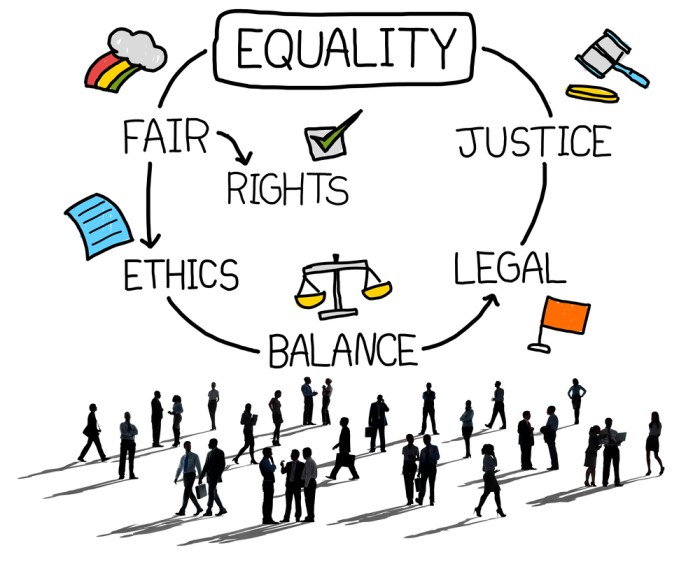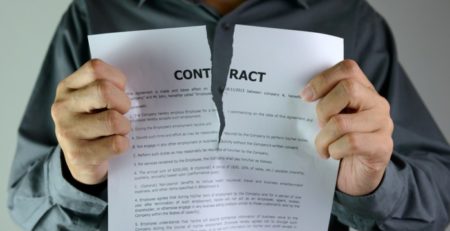It is worth reading the reasons you should file an unfair dismissal case. You have been dismissed and now you want to know if you should file an unfair dismissal case. Do you wonder if an unfair dismissal case is right for you? We can help! We are often asked by people if it is worth filing an unfair dismissal case after being dismissed. Although it can seem daunting and complicated, filing an unfair dismissal case may prove to be rewarding. These 7 reasons are why you should file an unfair dismissal claim.
1. It is possible to regret not filing it. Do it now, before it is too late!
To file a claim for unfair dismissal in the Fair Work Commission there is a strict deadline of 21 days. The Fair Work Commission will only grant extensions of time in very rare circumstances. These are situations that are not common, routinely or usually encountered, unusual, special, rare, or unusual. These circumstances do not have to be rare, unique or extraordinary. A single event, or a group of events that are extraordinary together can be considered exceptional circumstances. To determine if exceptional circumstances exist, it is important to consider all relevant circumstances. It is important to note that it is not uncommon for someone to be unaware of the time frame for lodgement.
Regrettably not having filed your claim in time (within 21 days) is not an acceptable reason for a delay in the eyes of the Fair Work Commission. We encourage you to file your claim even if you are unsure.
2. Protecting your name.
Your employment history and prospects of finding work in the future may be affected if you are dismissed. It may be important to clear your name if you feel you were unfairly dismissed. You may be able to reach a settlement with your employer to have the termination cancelled and for you to resign. You may also need to include a reference or statement of service. Alternatively, a member Fair work Commission may decide, in a formal hearing, or arbitration, if the dismissal was fair. Your name could be cleared if the member finds that you had no valid reason to dismiss you or that your dismissal was unfair.
3. Employers should pay.
You can also force your employer to make a moral decision and hold them responsible for their actions. An employer could also be required to pay you money. You can also seek financial compensation for economic losses by filing an unfair dismissal case. You cannot get damages or compensation beyond the 26 weeks of pay you are allowed to seek. Employers will be more likely to take your claim seriously if you make them pay any money. Employers are often concerned about their finances. Paying out an ex-employee to settle a claim for unfair dismissal will teach them a valuable, and possibly costly lesson.
4. Cost-effective Litigation
It can be costly to start any type of litigation or court action. In the event of dismissal, unfair dismissal claims may only be available to employees. Although an employee can choose to file a claim under the common law, they could be subject to legal fees of tens to thousands of dollars. The unfair dismissal system in the Fair Work Commission is relatively cost-friendly. Many companies and firms will provide advice and representation on a fee-based basis. With no win no pay fee options a possibility. This gives more people access to justice without worrying about spending a lot of money before they achieve the desired outcome.
5. Rapid Outcomes or Determination
After an unfair dismissal request has been filed, the Fair Work Commission will arrange for a conference. This conference is conducted privately by an independent conciliator of the Fair Work Commission. Unfair Dismissal disputes can be resolved by this informal conference. An independent conciliator will help the parties explore their options and help them reach an agreement without the need to go to court. These conferences are usually held within 3-5 weeks after the application is filed. Around 78% of cases settle at these conferences. If the matter is not settled and the case goes to a formal hearing it will likely take several months for a decision. The Fair Work Commission is a quicker process than court proceedings. Employees can expect to get a desired outcome in a short time.
6. Terms of Settlement or Deed of Release.
It is possible that an employee and their employer will reach an agreement before a formal hearing. The terms of the agreement will likely be recorded in a document called ” Terms Of Settlement” (or a ” Declaration of Release). This document will put in writing the agreement between the parties. It will state that the parties have reached an understanding without admitting guilt or responsibility.
Many of these documents contain clauses that are essential and beneficial to employees, such as confidentiality, non-disparagement, and release. These clauses are meant to assure that both parties agree to keep the matter secret (meaning that all employment, dismissal, and Fair Work Commission proceedings will be kept confidential), that neither party may make disparaging remarks about the other and that they will not bring any further claims against the other. A document of this nature will be helpful to both parties in the event of allegations of misconduct and animosity. It will also provide legal reassurance that the parties can move on.
7. Strive for justice for you and your co-workers.
Do not allow your employer to dismiss you for no reason. You must do something! Your employer must be able to show that they are not able to treat employees in such a way. Every person has the right to an impartial and fair investigation before any decision to terminate an employee is made. An employee may appeal against being terminated because of misconduct allegations. This will not only bring you justice but also make the employer accountable for future employees. Your employer will be more careful about terminating employees in the future.
We are not lawyers. But we are the nation’s leading workplace advisors. If you need support in filing for unfair dismissal Victoria, we are here to help. We support employees through Fair Work, mediation, and concilliation. For confidential, free advice, message or call us if you have any questions about your workplace rights or about the reasons you should file an unfair dismissal case.











